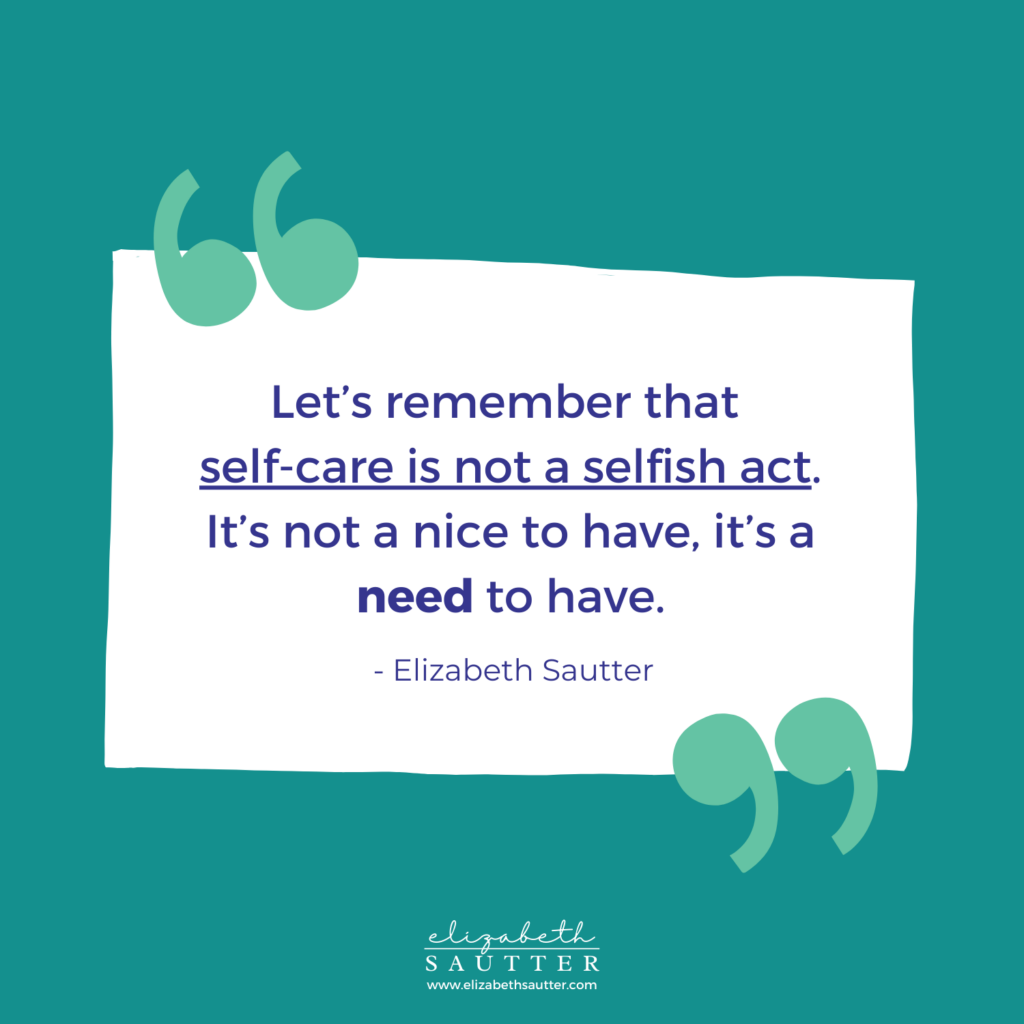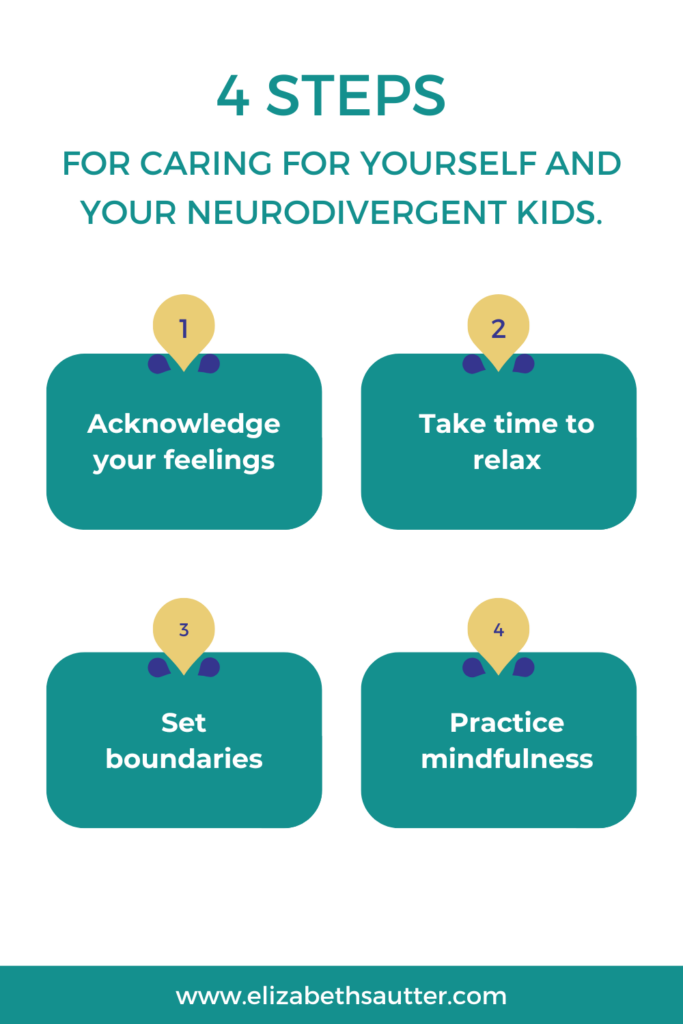Each child is different and has different needs. As caregivers, we need to make sure that we’re providing their needs at home, as well as at school. This additional effort can often be stressful for us, and can cause our own needs to go unrecognized. When we neglect our needs, it not only affects our mental health but also the mental health of our children. We transmit this stress and energy whether or not we mean to, whether we want to or not. The best way to address these difficulties is through self-care.
Let’s remember that self-care is not a selfish act. It’s not a nice to have, it’s a need to have.

Rather, learning how to care for ourselves makes us more capable of caring for the people around us. Here is a helpful guide on how to practice self-care, which can help you become more compassionate parents and caregivers of neurodiverse children.

Acknowledge your feelings
It’s common for parents and caregivers to have feelings of inadequacy, frustration, or even guilt when caring for neurodiverse children becomes challenging. However negative these feelings may be, it’s unhealthy to try to change or fix how you feel. This can lead to a downward spiral of self-criticism.
When it comes to challenging emotions it helps to practice self-compassion. Tell yourself or write it down: It’s okay to feel this way. Taking a moment to breathe and be aware of your feelings can help you prepare and think about your next steps.
Take time to relax
Being a parent or caregiver doesn’t mean you have to give up other parts of your identity. It’s always good to take time for yourself and revisit your hobbies. Does reading take your mind off of your worries? Then maybe it’s time to sit down and go through the next book on your reading list.
Self-care is intertwined with taking better care of your physical health, so going for a walk or exercising can also help you relax. Physical activity provides health benefits by pumping up your brain’s endorphins and improving your overall mood. It might even help you become more active for your next playtime with the kids.
Set boundaries
It’s a sign of both bravery and humility to learn when to say: I’ve reached my limits, it’s time to step back.
Parents, caregivers, and social workers are all driven by their passion and commitment to care for others, but doing so can also lead to emotional stress, exhaustion, or burnout. It is thus necessary to set boundaries for yourself before caring takes its toll on you. Self-care can look like asking your employer for a day off to recharge your energy, or asking a family member/coworker to take on responsibilities on your behalf.
Practice mindfulness
While self-care is often advertised to us through the consumption of certain products and services, remember that you do not have to spend money just to care for yourself and feel better. Self-care is about being present in the moment and reflecting on yourself, which can be cultivated through activities like meditation or journal writing.
Our blog post on self-care as a parenting need, and not a want, also talks about how sensory awareness is a mindfulness practice in itself. Caring for neurodiverse children can sometimes overwhelm or overstimulate our senses. Listen to what your mind and body tell you, and this can guide you towards more thoughtful and regulated responses.
Engaging in self-care is a normal and integral part of our roles as parents and caregivers. While the self in self-care means that we center ourselves, its benefits extend towards our children who can model their behaviors after us and thus also learn to take better care of themselves.

